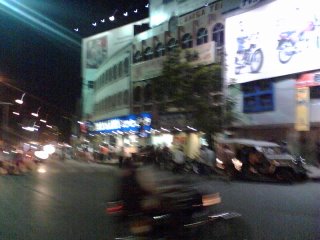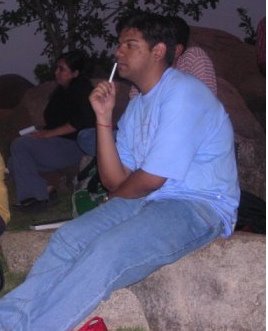
Before I had set forth on my sojourn to Andamans, we did a brief stay-over at Chennai and a visit to Landmark was undoubtedly, inevitable. And believe me, I made a visit to all their three stores: Nungambukkam, Spencer Plaza and the latest one at the Victorian Chennai Citi Center (it’s so new that you may even smell fresh paint). And no wonder that I spent a fortune there so much so that it is difficult to describe the expression on my mother’s face when I told her of my book – shopping. I even had plans to visit The Fountainhead but cancelled it after this lat minute crisis.
And what did I buy:
American Vertigo: Traveling America in the Footsteps of Tocqueville
Levy’s 30th book, he literally speed-writes and writes interestingly which it has to be when a Frenchman travails America coast to coast. And he did that because The Atlantic Monthly invited him to travel around the country during the election year of 2004 and to reflect on what he saw, in the manner of Alexis de Tocqueville's 1835 classic Democracy in America.
He travels in a typical Kerouac-style and like Tocqueville, whose original mission was to study the American prison system. He chats with Americans of all sorts and writes the postscripts on the contemporary America’s failures.
A theatergoer’s guide to SHAKESPEARE
Long been a desire to watch Shakespeare incarnate on stage, the book serves the purpose well. The sketches the author has drawn make the experience of a performance more enjoyable, and increases the appreciation for the breathtaking scale of Shakespeare's achievement.
A year in Provence
Bought this book to know more about the French culture. A pleasant surprise, the book is a tempting depiction of rural France and all its glorious food, festivals and residents. A Year in Provence is written in monthly chapters and tracks the days in the life of the English author, Peter Mayle, and his wife who have purchased a home in a small village in Provence, France.
The Penguin book of Indian Journeys
Travel memoirs are my latest fixation. This one has got everyone from Seth to Dalrymple and Pankaj Mishra to Arundhati Roy. It examines the petty and the large-hearted, the honest and the hypocritical, the smug, the defeated and the insecure . . .
For Reasons of State
This with a foreword from Roy, includes Chomsky’s articles on the war in Vietnam and the "wider war" in Laos and Cambodia, an extensive dissection of the Pentagon Papers, reflections on the role of force in international affairs. Highly recommended for those who want an education on Vietnam and Chomsky’s political work.
Stories from India
A compendium of Kipling’s very interesting tales set in India. Makes a very exhilarating read and transports you to the, then times.
American Notes
Having read almost all of Dickens, this was a must-buy especially when you realize that some things haven't changed about America. Nevertheless, true or not, is a great book by Dickens. Reading it you get a great sense of the author as well as how he observed the world. His humor really shines through, as does his familiarity.
Finnegan’s Wake
This came as a strong recommendation from
here.This was an experimental work by James Joyce. The motive idea of the novel, inspired by the 18th-century Italian philosopher Giambattista Vico, is that history is cyclic; to demonstrate this the book begins with the end of a sentence left unfinished on the last page. Joyce’s strange polyglot idiom of puns is intended to convey not only the relationship between the conscious and the unconscious but also the interweaving of Irish language and mythology with the languages and mythologies of many other cultures.
The Penguin History of ECONOMICS
A core book. A very clear, reliable and readable history of economic thought from the ancient world to the present day. From Homer to Marx to John Stuart Mill, the author shows how to keep your Keynsians from your post-Keynsians and New Keynsians.
Breakfast at Tiffany’s
This one was long due especially after
this.
Who can forget Audrey Hepburn’s immortal portrayal of Holly Golightly! I won't give away the two major twists in the novel, because I want you to read it, cheer for her, and cry with her, without knowing what will happen.
Labels: Books



